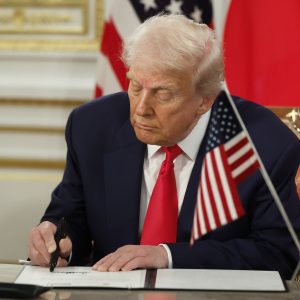Electoral Count Reform Hailed as ‘Essential First Step’ Toward Safeguarding US Democracy
Democracy advocates on Wednesday welcomed as important progress the introduction of legislation to reform and modernize the Electoral Count Act, a 19th-century law that former President Donald Trump attempted to invoke in his failed attempt to overturn the 2020 presidential election.
“Modernizing the century-old Electoral Count Act is an essential first step toward meaningfully protecting our democracy from future attempts to overthrow the will of voters,” Christina Harvey, executive director of the advocacy group Stand Up America, said in a statement.
“The Senate Republican Caucus should follow the lead of the nine Republican co-sponsors and negotiators of the ECA fix and work with Democrats to swiftly pass this legislation,” Harvey added.
According to The New York Times:
The legislation aims to guarantee a peaceful transition from one president to the next, after the January 6 attack on the Capitol demonstrated how the current law could be manipulated to disrupt the process. One measure would make it more difficult for lawmakers to challenge a state’s electoral votes when Congress meets to make its official count. It would also clarify that the vice president has no discretion over the results and set out the steps to begin a presidential transition. A second bill would increase penalties for threats and intimidation of election officials and encourage steps to improve the handling of mail-in ballots by the Postal Service.
“Americans deserve to know their votes will be counted and their voices heard in our elections. Reform of the antiquated Electoral Count Act is an important step to safeguard the results of free and fair elections,” Common Cause president Karen Hobert Flynn asserted. She added that then-President Donald Trump and his associates “came exceptionally close to engineering an overthrow of the 2020 election, as the January 6th select committee’s hearings have made clear.”
Originally published at Commondreams.org.








